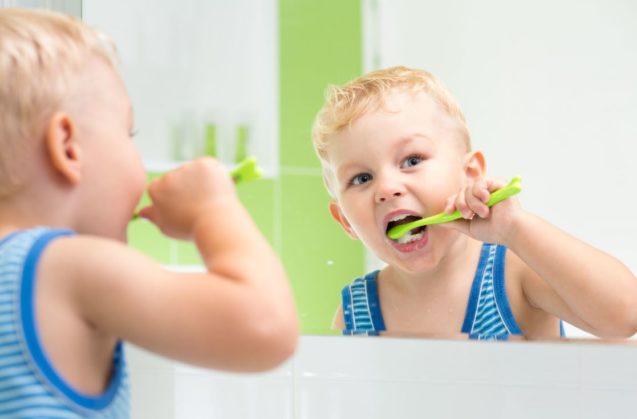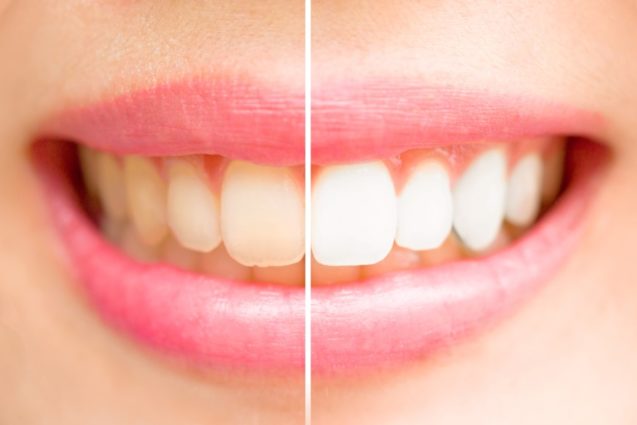By hassan
02 Apr, 2017
Pediatric Dentist
best dentist mississauga, bright smile, brushing teeth, brushing your teeth, child dentistry, dental blog, dental care, dental health, dentist blog, dentist mississauga, Dr. Hassan Dental (formerly radiant dental), how to make my kids brush their teeth, kid, kids and oral health, tips on healthy teeth, toothbrush
While most people have been encouraged to brush and floss their teeth regularly, it’s a tough habit to establish, especially later in life. That’s why dentists are so keen on helping children start healthy habits early on, so they’re less likely to deal with serious dental problems years down the line because of poor oral health habits. If you’re a parent of a young child, how can you help establish a friendship between kids and their oral health
Start Early
The first key is starting the habit as early as possible, even before they have teeth.
By wiping their gums with a clean, soft cloth or very soft toothbrush, you can help your infant get used to the idea and sensation of oral cleanliness being a regular part of their day. As they get a little older and begin teething, this ritual can be soothing and enjoyable too.
Don’t Assume They’re Doing It Right
While a child of 3 or 4 may be able to move a toothbrush around their mouth and work up a lather, they probably still need some help adequately brushing every tooth.
This isn’t just a matter of being easily distracted or not fully appreciating the importance of doing a thorough job. Instead, they likely don’t yet have the motor skills and coordination necessary to do a really good job brushing everywhere. In this case, assisting children until they’re more in control goes a long way.
Set Goals
Since you want brushing and flossing to be a lifelong habit for your children, it’s important to give them a reason to care about it before they’re old enough to truly appreciate oral health.
Many parents have found that sticker charts work especially well:
- Create a simple grid that covers a week and tape it to the bathroom mirror. (There are plenty of free printable charts available online, or you can draw your own.)
- Let your child pick out stickers they like and hang them up next to the chart.
- Decide on a simple, (non-sugary) privilege or treat your child will earn if they do a good job filling in the sticker chart each time they brush and floss properly.
Be sure to check with your child’s dentist, as they may have similar ideas and materials right there in their office to share with you.
Make it Fun
Along the same lines as the sticker chart suggested above, anything you can do to make maintaining good oral health less tedious and more fun, the better the chance you’re going to teach your kids to love brushing and flossing in the long run.
There are plenty of novelty toothbrushes, floss holders, flavored toothpastes, and other accessory options you can experiment with to make the whole experience more engaging and enjoyable. Sometimes, all it takes to get a young child interested in brushing and flossing regularly is for them to see you doing it and enjoying it. In fact, if you make a habit of participating with them every day, they might look forward to this special time you have together.
It’s Never Too Late
Although it’s certainly preferable for excellent oral health habits to start when a child is young, it’s never too late to establish good patterns.
If your child is already in school and still doesn’t like to brush and floss, there’s not a moment to lose. You may need to be especially creative to find ways to incentivize their participation, but it can be done.
For advice on your kids and their oral health, ask your local Tooth Corner or check back later, we might have another blog in store for you!
More
By hassan
11 Feb, 2017
Dental Care, dental prevention tips, dentist, Health Tips
best dentist mississauga, bright smile, brushing teeth tips, brushing your teeth, dental care, dental prevention Archive, dentist, Dr. Hassan Dental (formerly radiant dental), how to brush your teeth, tips on healthy teeth, tooth corner, toothbrush
We’ve all heard our dentists tell us to “brush twice a day and floss regularly.” But is that all you need to do to build strong teeth and gums? Not exactly. The following are many do’s and don’ts of brushing your teeth to ensure they stay at their healthiest, strongest and brightest.
Tooth Brushing Dos:
- Brush with fluoride toothpastes and gels. Fluoride is a naturally occurring element that helps prevent and even reverse early stages of tooth decay.
- Choose a toothbrush that is appropriately sized and use a soft-bristled brush. Bristles that are too hard can injure your gums and cause recession.
- Brush for 2 minutes covering all sections of the mouth (upper, lower, inside, outside or behind). A motorized (electric or battery-operated) toothbrush with a timer can be a great choice; as most people don’t realize 30 seconds per mouth section is a long time. Don’t forget to use short, gentle strokes that cover one or two teeth at a time.
- Brush shortly after you’ve consumed anything particularly sweet or chewy, in addition to the normal two times a day (morning and bedtime). If it’s not convenient to brush, rinse with mouthwash or water to wash away food particles, sugar residue and to help dilute acids produced by decay-forming bacteria.
- Replace your toothbrush every 3 months or whenever the bristles start showing signs of excessive wear. Also replace after any illness (cold, flu, etc.). Germs can live on the bristles so if you continue to use the same toothbrush, it could lead to reinfection.
- Brush your tongue once a day with a toothbrush or tongue scraper. Sulphur-emitting bacteria can reside on the tongue surface and are largely responsible for bad breath. One or two swipes from back to front will suffice to reduce the bacterial count in your mouth and help control halitosis.
- Keep toothbrush heads dry after use.
Tooth Brushing Don’ts:
- Don’t ever share toothbrushes with anyone, even your family members. Germs and gum disease can be transferred via moist brushes.
- Don’t brush your teeth within 30 minutes of consuming acidic (citrus fruit) foods or beverages (juices, sports drinks, soft drinks). The acids soften the tooth structure and make them more susceptible to abrasion through brushing.
- Don’t use a hard-bristled brush or excessive force. You are cleaning your teeth and gums, not the grout between your bathroom tiles! Be gentle.
- Don’t allow children 2 years old and under to ingest toothpaste. Children should always brush teeth under the supervision of an adult. Tip: Children need assistance with oral hygiene until they possess the dexterity to tie their own shoelaces.
- Don’t forget to rinse! Rinsing collects and discards all of the bacteria you just brushed from your teeth and gums and prevents it from re-depositing on the tooth surface.
- The Most Important Don’t: Don’t forget to schedule regular checkups with your dentist (Like us) every 6 months. Bi-annual professional cleanings and exams are the easiest way to avoid painful and costly dental problems in the future.
Share this with your friends and family and let us know if you have any other tips to keeping your teeth healthy!
More


